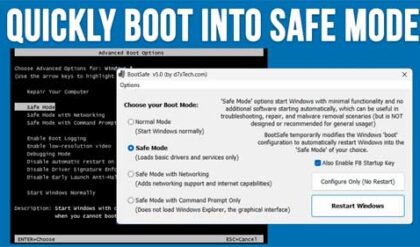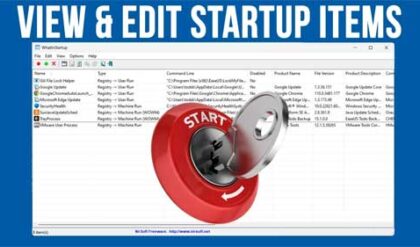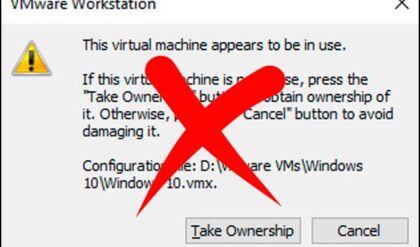Everyone knows Windows is not perfect and it does crash from time to time. Sometimes to get things running again it’s just a matter of ending the program that is causing the problem or rebooting the computer. But sometimes there are more serious issues that a reboot won’t fix. Fortunately Windows offers some tools to help your recover from these crashes. The System Recovery Options menu Windows Vista and Windows 7 contains several tools that can help you recover Windows from a serious error. You can perform repairs to the files that Windows uses to start itself, perform a restore operation using System Restore, and restore your entire computer and system files using backups that you have made previously.
To fix serious crashes with older versions of Windows such as XP and 2000 you would have to use the Windows Recovery Console and if you didn’t have it installed you would have to find you Windows disk and boot to that in order to be able to even get to the Recovery Console. Plus the Recovery Console wasn’t too user friendly if you didn’t know what you were doing. The Recovery Console in earlier versions of Windows has been removed in Vista and replaced by several tools located in the System Recovery Options menu. The System Recovery Options menu is on the Windows installation disc. The menu might also be installed on your hard disk if your computer has preinstalled recovery options.
Here are the tools you can use to recover your system:

Startup Repair
Fixes certain problems, such as missing or damaged system files that might prevent Windows from starting correctly. When you run Startup Repair, it scans your computer for the problem and then tries to fix it so your computer can start correctly.
System Restore
This option helps you restore your computer’s system files to an earlier point in time. It’s a way to undo system changes to your computer without affecting your personal files, such as e-mail, documents, or photos. If you use System Restore when the computer is in safe mode, you cannot undo the restore operation. However, you can run System Restore again and choose a different restore point if one exists.
Windows Complete PC Restore (Vista) or System Image Recovery (7)
Restores the contents of your hard disk from a backup. Windows Complete PC Backup and Restore is not included with Windows Vista Starter, Windows Vista Home Basic, or Windows Vista Home Premium.
Windows Memory Diagnostic Tool
Scans your computer’s memory for errors.
Command Prompt
Command Prompt replaces the Recovery Console from earlier versions of Windows. Advanced users can use Command Prompt to perform recovery-related operations and also run other command line tools for diagnosing and troubleshooting problems.
For more detailed information on how to use these tools type in the name of the tool in Windows help.
To access the System Recovery Options menu:
If you have a Windows installation disc:
- Insert the installation disc.
- Restart your computer.
- If prompted, press any key to start Windows from the installation disc. If your computer is not configured to start from a CD or DVD, check your BIOS settings.
- Choose your language settings, and then click Next.
- Click Repair your computer.
- Select the operating system you want to repair, and then click Next.
- On the System Recovery Options menu, click a tool to open it.
If your computer has preinstalled recovery options:
1. Remove all floppy disks from your computer, and then restart your computer.
2. Do one of the following:
If your computer has a single operating system installed, press and hold the F8 key as your computer restarts. You need to press F8 before the Windows logo appears. If the Windows logo appears, you will need to try again by waiting until the Windows logon prompt appears, and then shutting down and restarting your computer.
If your computer has more than one operating system, use the arrow keys to highlight the operating system you want to repair, and then press and hold F8.
3. On the Advanced Boot Options screen, use the arrow keys to highlight Repair your computer, and then press Enter.
4. Select a keyboard layout, and then click Next.
5. Select a user name and enter the password, and then click OK.
6. On the System Recovery Options menu, click a tool to open it.






